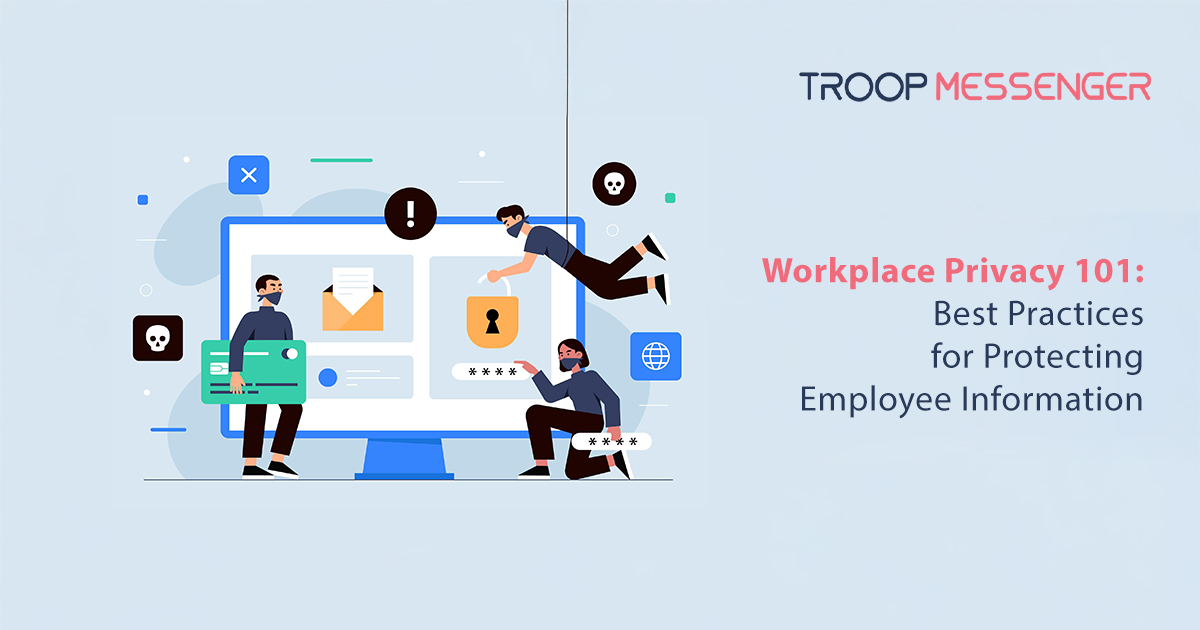Connect with us

How to Escape the Productivity Trap and Prevent Burnout
Be it at an individual or enterprise level, productivity is considered to be the core aspect of a company’s success and growth. However, it all starts and ends with the performance of an efficient workforce. They produce higher outputs with fewer inputs, use the best productivity apps, achieve great profit margins, and improve the crucial KPIs of the company.
It will always be gratifying to see productivity levels rise, but viewing your company solely through this lens is risky and can jeopardize the success of your entire enterprise. This can happen as the increased work productivity doesn’t help employees to relieve stress or their well-being.
We, humans don't have an infinite lifespan, so we can't possibly do everything. But we sometimes feel pressured and forget to live.
Table of Contents
Enhance the educational process to escape from the productivity trap
Sometimes, people get into the trap of toxic productivity as students. The most common reason is excess pressure from excess paper assignments with short deadlines. It’s hard to follow deadlines, especially when someone needs rest. Instead of worrying about completing your essay quickly, you could hire a skilled writer. Students can connect with academic writing experts who provide professional custom essay writing services, such as Edusson, a company that is always ready to assist with any assignments. Support like this helps students overcome conditions like burnout.
What is Productivity Trap or toxic productivity?
It is the harmful obsession with being productive every time and the unhealthy need always to achieve results. Someone falling into this trap constantly needs to be effective every time.
Most times, the main reason behind the 'always-productive' mindset is the need to feel accomplished.
People in this trap tell themselves and others around them that being productive is always necessary for a job promotion. As a result, they isolate themselves and barely communicate with friends. Similarly, they think that having results to show every time is the only way they can get recognition.
When someone fails to meet a goal, they feel anger and other negative emotions. The sad part is that they always fail because they usually have unrealistic expectations and goals for themselves. For that reason, they are typically frustrated.
Problems of Toxic Productivity
Falling into the sneaky trap of toxic productivity is dangerous in many ways – there is no positive side to it. The following are the adverse effects of this:
- Exhaustion
- Burnout
- Unhealthy interpersonal relationships
- Mental health problems
- Loneliness
Signs of Being in The Productivity Trap
While healthy productivity is not similar to toxic productivity, it is confusing to know whether you're in the trap or not. On the other hand, knowing the signs of toxic productivity helps people around you in the trap.
The signs of toxic productivity include:
High level of stress
People in the productivity trap exert themselves for long periods at stretches. As a result, they experience stress almost all the time. Since they don't take time out to relax their brains, they overwork it, leading to stress symptoms like headaches, burnout, and body aches.
While positively productive people experience stress, people in the trap deal with it more constantly. Regular stress is a part of their lives.
Motivation loss
Another glaring sign of toxic productivity is the loss of motivation. It seems funny because the problem with people in the trap of inefficient working is over-motivation. Well, the interesting twist is that over-motivation is no motivation. The motivation of people in the productivity trap is often unhealthy in the first place. That's why it's so short-lived.
So if you discover that you've not been motivated as you used to feel about a task, you are close to getting into the trap. Although many other things make you lose motivation, excessive productivity is a common cause. To be sure, try to reflect on the reason. If it's because you were motivated to achieve a goal, and it failed, it might be toxic to productivity.
More mistakes
Of course, nobody is perfect. But it's never normal to make mistakes occasionally- something is probably wrong. It could be an indication that you've put excess pressure on yourself. People in the dangerous trap of toxic productivity tend to forget things quickly and be careless. The culprit is the imbalance they've created by pushing themselves too much.
Constant Exhaustion
The rush that people in dysfunctional productivity feel is always short-lived. Eventually, they are always exhausted-emphasis on “always.”
Since they are constantly overworking themselves, they always feel drained. Their constant activity causes constant exhaustion. Their exhaustion becomes a cycle – they work too much, get exhausted, and refuse to rest, draining their bodies.
Neglecting personal life
While it's good to 'put in the work,' toxic work output makes people overdo it. People in the toxic productivity trap focus on work and nothing else. Just as they don't see the need to relax and gain strength, they don't engage in self-care activities. They see self-care as nothing but a waste of time and a distraction.
Similarly, people with toxic productivity don't take the time to connect with family and friends. They isolate themselves from others to have the most time to be “productive.”
Creativity block
People with toxic productivity typically experience creativity blocks. The reason is simple: they pursue perfection so much that they don't think out of the box.
Since they've put all their attention and concentration into a particular assignment, they can't quickly 'shift' to anything creative.
Escaping The Productivity Trap
If any of the signs mentioned above sound familiar, don't fret. There are practical ways to escape the toxic productivity trap. Similarly, understanding the escape tips helps you avoid poisonous work habits.
Here are the different ways to escape the toxic productivity trap:
Learn to delegate
Regardless of how skilled, firm, or talented you are, it's essential to know you can't do it all. Whether it's your business or someone else's establishment, you'll benefit significantly from delegating tasks.
When you delegate tasks, it significantly reduces your headaches and stress. You don't have to worry much about something if it's not on your plate. However, it's important to delegate tasks to someone capable of avoiding double stress.
Stop comparing
One of the biggest reasons people fall into the toxic productivity trap is that they compare themselves. Everyone has personal accomplishments, and yours isn't the same as your colleague's. You don't have to push yourself in one particular area and neglect the others.
The best way to improve yourself continually is to push yourself to your limits, not to someone else's limits.
Take breaks
While it's essential to work, 'all work and no play makes Jack a dull boy.' You don't have to fall sick before you take a break off. A common mistake people make is working for long periods to rest at a stretch- it doesn't work that way. The most effective way to refresh your body and mind is to take breaks regularly – they don't take long.
Many people believe rest doesn't help productivity, but it does. Research has proven that taking breaks enables you to work more efficiently by improving your mood and refreshing your brain. When you take a rest, you give yourself new energy.
A walk with your friends or a visit to a nearby park without your gadgets goes a long way.
Signs of Burnout
Burnout is one of the most prominent symptoms of toxic productivity. In most cases, people only know they've fallen into a toxic mindset after experiencing burnout.
But how do you know you have burnout?
The most common sign of work exhaustion is the feeling of being stuck. When you're experiencing burnout, you feel like you're not heading anywhere in your task. Feelings of self-doubt, hopelessness, and anxiety could also signal fatigue. When people have burnout, it affects their mood and mental health generally.
Other signs of burnout are:
- Lack of work efficiency
- Exhaustion
- Procrastination for long periods
Escaping Burnout
It is essential to know how to prevent burnout because it doesn't just come and go. When someone has exhausted themselves and doesn't know anything about how to deal with burnout, they can't get out of it.
The practical ways of escaping burnout include:
Setting a SMART goal
Generally, setting a defined goal helps you avoid unnecessary pressure. Yet, a SMART goal ensures you escape burnout. A SMART goal is specific, measurable, attainable, rewarding, and time-bound. When you set your goals, you have a particular direction, making you less likely to burn out.
Create limits
The main reason people experience burnout is that they've gone beyond their activity limits. Hence, it's crucial to create boundaries that work best for you. Creating your limits involves setting your priority and enforcement methods. Your limit is how long you go and how much work you do without feeling overwhelmed.
When you understand your maximum work hours, you know when you're going above such limits. Creating limits isn't something you do at once. It is a gradual process. You'll have to observe yourself to determine what works best for you.
Plan tasks
People experience burnout not for having too much work but for lack of planning. When you plan your tasks using the to-do feature from one of the best team communication tools, something like Troop Messenger, you find it easier to incorporate breaks.
Wrapping Up
Especially when it comes to work, things happen so fast. You lose track of how many hours you've worked when you fix your attention. Similarly, you might not have noticed how you isolate yourself when you set your mind on a particular task. It's better to be safe than sorry – knowing how to avoid toxic productivity is better than battling it. Similarly, understanding how to escape burnout helps you understand what to do when you experience it.
Reflection is essential to ascertain your achievements regularly. When you reflect on your activities in the last week, you remember the small achievements. These seemingly 'small' achievements add up and keep you motivated healthily.








